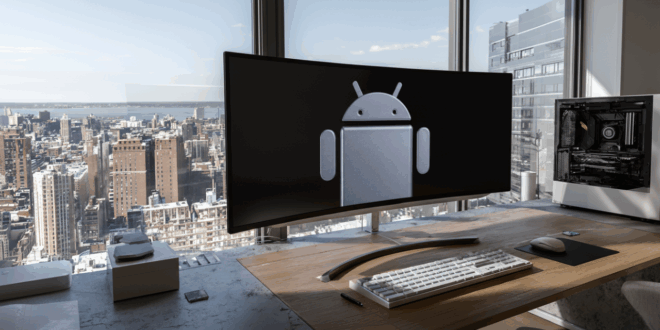Aluminium OS, an operating system based on Android with Gemini at its core. This project is fully built on the Android framework and aims to replace ChromeOS by 2026.
The Mountain View giant has been working for several months on a new operating system called Aluminium OS. This information comes from a job listing published by Google, which is currently seeking a senior manager to drive product strategy for Android-based laptops and tablets. The document explicitly mentions the codename Aluminium OS and describes a platform designed from the ground up around Gemini.
Aluminium OS, Android finally sets up shop on computers
Aluminium echoes Chromium, the open-source project underlying ChromeOS. The name retains the metallic sound common to Android.
Google is no longer hiding its intention to unify its two historical domains under a single, more powerful banner. Unlike attempts like Android-x86 or Samsung DeX, Aluminium OS does not simply expand the mobile interface.
It represents a true desktop system designed for keyboard, mouse, and larger screens. Artificial intelligence is at the core of the system, with Gemini acting as a genuine system assistant capable of predicting actions, managing windows, and automating complex tasks.
Google is already testing this platform on various processor architectures. Development boards equipped with MediaTek Kompanio and Intel’s 12th generation chips are running an advanced version of Android 16.
The final version is expected to be based on Android 17, slated for 2025, with a commercial launch the following year.
A complete range targeting all segments
The job listing reveals the entire commercial strategy. Google is dividing its future catalog into three main categories. AL Entry will succeed the classic Chromebooks, targeting students and light business use.
The “Mass Premium” segment aims at demanding users at a reasonable price point. The volume core, which is equivalent to the current Chromebook Plus but significantly more powerful, will be positioned between €649 and €999.
Finally, the “Premium” category is the real novelty. It directly competes with high-end Windows and macOS computers.
High-end machines featuring aluminum or magnesium chassis, 120 Hz OLED displays, and 32 GB of RAM are set to compete with XPS, MacBook Pro, and other Legion Pro models.
Several formats of Aluminium OS are planned: traditional laptops, detachable 2-in-1 devices, professional tablets, and even mini desktop PCs (the return of Chromebox, but under Aluminium OS). Google aims to be present everywhere that Windows and macOS currently dominate.
ChromeOS gradually facing extinction
The shift to Aluminium OS is the most delicate point. Google assures that current Chromebooks will continue to receive updates for several years.
Some recent models, equipped with compatible processors, may even migrate to Aluminium OS through a major update. For others, support will gradually come to an end according to the usual schedule.
Google is laying the groundwork for a unified ecosystem where the same system fuels phones, tablets, and computers. It remains to be seen if this new support will gain traction among users and manufacturers.





